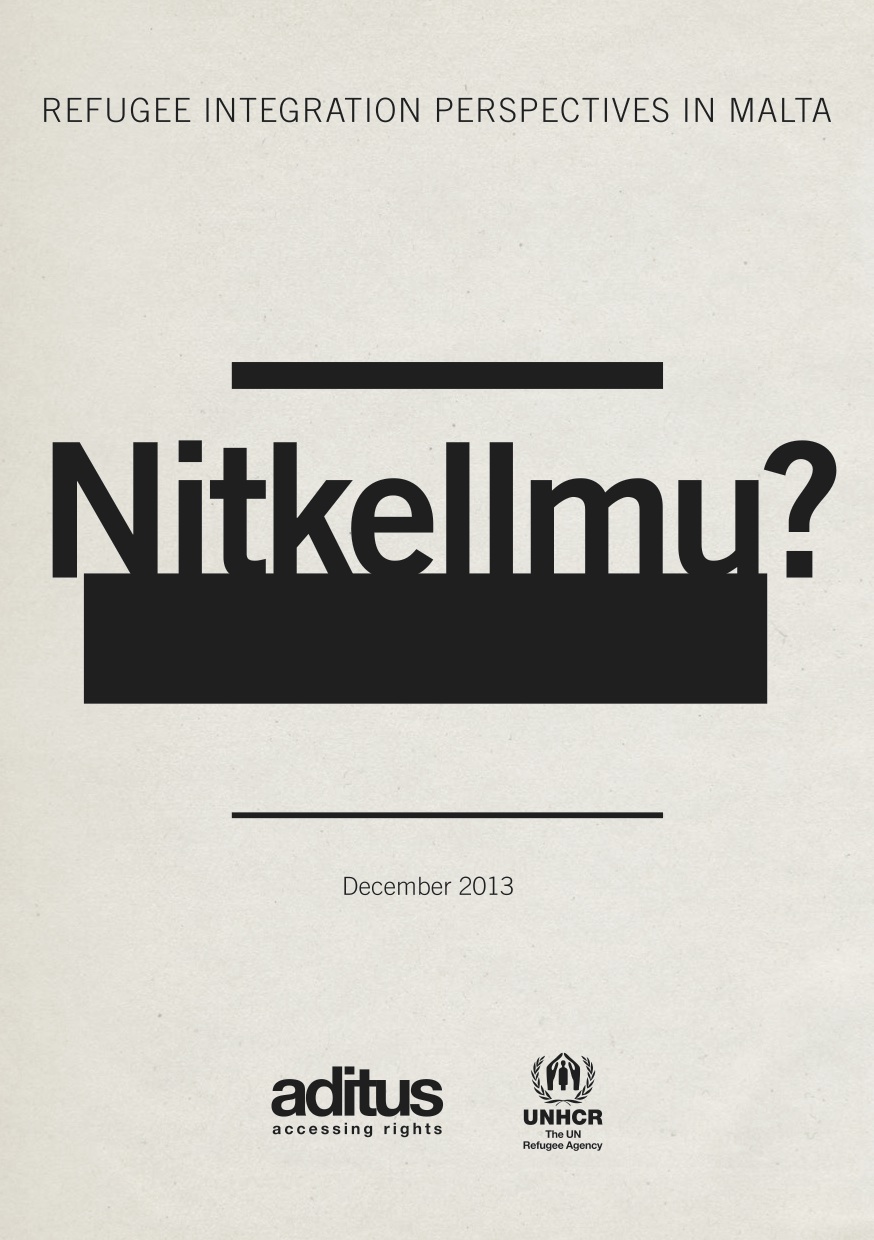A report published by UNHCR and aditus foundation presents settlement and integration realities from the perspective of refugees, as well as from the viewpoint of personnel within public services in Malta. The aim is to contribute towards a positive integration process, to the benefit of people granted protection, as well as for Maltese society at large.
The report is based on two main activities spanning over several years:
- Findings from house visits to 150 refugees and beneficiaries of protection who are living in private accommodation in local communities in Malta;
- Interactive training sessions delivered to front-desk staff and managers of mainstream services, addressing refugee realities, best practices and challenges relating to their interaction with migrants and refugees.
The report describes a range of significant problems encountered but also positive lessons learned.
Many refugees confirm that they live their lives separately from locals, rarely engaging in social interaction with neighbours or the local community.
More than half of the refugees confirmed that they were in employment at the time of the interview, but many have extremely low wages and exploitation, particularly when work is unregistered.
All participating mainstream services indicated a strong commitment towards improving their quality of service to all, irrespective of nationality, status, gender, etc.
But communication challenges are consistently mentioned by staff among relevant entities as a main obstacle to effective service-provision.
The report emphasises that integration policies can open the doors to enjoyment of human rights through processes such as education, employment, political participation, non-discrimination, long-term residence as well as citizenship and family unity. Integration opportunities also present incentives for refugees to be socially proactive, improving their educational profiles and engaging in fruitful employment.
The publication has been welcomed by Ministers Marie Louise Coleiro Preca and Helena Dalli who have jointly penned a foreword for the report:
“Malta is continuing to make the case for further engagement with the EU on the basis of solidarity. But we also need to seriously address the reality of migrants and refugees who are here to stay and give particular attention to the needs of separated and unaccompanied children.
We welcome this report, giving attention to the views of those granted asylum as well as the perspective of people working as service providers. Only through establishing the facts of the situation is it possible to define what is required to facilitate positive settlement, foster integration of people granted protection in Malta and ensure the wellbeing of separated and unaccompanied children.”

